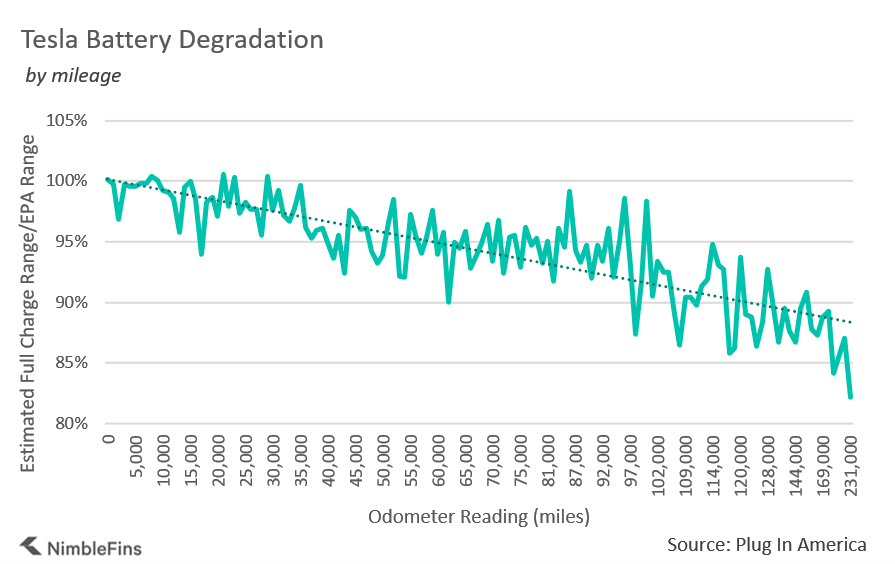John’s excellent column in the Observer this weekend was a reminder to those of us who enjoy driving EVs that we shouldn’t feel too smug about our environmental impact.
Electric vehicles have a greater carbon footprint in their manufacturing process than fossil-burners, and it takes a while for the environmental benefits after you drive it off the forecourt to make up for this. In countries like the UK, where it’s relatively easy to get your electricity from renewable or nuclear sources, that’ll probably take about 6-12 months. In countries like the US where you’re probably getting a lot more of your ‘fuel’ from coal, it could take several years, and it’ll probably be the second or third owners of an EV who really have a more carbon-neutral vehicle!
In the intervening period, though, we can feel a little bit more virtuous because — and I do appreciate that any pro-EV points I make in this post might definitely be classified as self-justification! — at least we have moved a lot of pollution away from highly populated areas. (This is distinct from carbon footprint, which can happen anywhere and has a much greater area of impact.) When it comes to human health, though, we’re only starting to get to grips with, for example, the damaging effects of the tiny particulates emitted from exhaust pipes — Tim Smedley’s book Clearing the Air is an excellent explanation — and the key thing about them is that they don’t travel very far. You are more at risk in a cycle lane next to traffic than are the pedestrians a few meters away… especially if they walk on the further side of the pavement.
I’m often annoyed by people who sit stationary with the engine running, while waiting for their kids to come out of school or their spouse to come out of the supermarket… and then I have to remember that the poor things are in such primitive vehicles that they can’t even keep themselves warm in their cars without polluting the local area.
Long-lasting?
One thing we don’t know much about yet is the longer-term outlook for individual vehicles, because they just haven’t been around long enough. EVs are generally expected to outlive their internal combustion predecessors because they have far fewer moving parts, less vibration, less thermal stress, and so forth. Yes, the batteries will have a limited lifespan, but they can be replaced, and they don’t get thrown away: their consituent materials are much too valuable not to recycle.
What’s also sometimes not appreciated by the Jeremy-Clarkson-watching fraternity is that these aren’t like phone batteries where you have to replace the entire thing. Car batteries are made up of lots of cells packaged into modules, and individual modules or even cells can often be replaced when they start to fail. Yes, we all know rechargeable batteries do wear out… but they don’t die suddenly; their capacity just decreases over time (or more specifically, as they go through an increasing number of charging cycles, which usually corresponds to mileage).
When Nissan started producing the Leaf, they announced all sorts of plans for how they would recycle and reuse the batteries when they were no longer useful in the cars. In fact, though, few of these plans have really come into play yet, because cars and batteries are lasting far longer than expected.
Part of the reason battery life has never really worried me from a practical or financial viewpoint is that battery range has also been increasing. This page describes a study of Tesla Model S batteries (the Model S having been around longer than most), and includes a nice graph showing the battery degradation against mileage:

Now, I happily drove my previous EV for 5 years, which had a range of about 70 miles. My current car has a range of around 300 miles. If it follows this trajectory, then after 20 years of my current 10,000 miles per year, it will still have a range of around 250 miles, which is plenty for almost anybody, and certainly for me!
Let’s talk about cobalt
The issues around the sometimes-worrying mining practices of the rarer elements involved in battery manufacture are well known, and a cause for concern. Cobalt, in particular, is a key component of current batteries and is mined almost exclusively in the Democratic Republic of Congo. Somewhere in the range of 15-20% of this is done by small-scale mines, often in hazardous working conditions, and some modest proportion of this is done by children.
Certain companies, like Tesla, claim to have eliminated these sources from their supply chain, though how much they can really have achieved this is uncertain. It’s partly for this reason that there is significant research going into creating cobalt-free batteries, but in the meantime, it is a situation which needs (and is getting) considerable attention.
It is, however, a situation for which we are all culpable, not just EV owners (though we EV owners take more of the blame). But you’re probably reading this on a device that includes a battery containing cobalt. And cobalt is used for many other processes too.
Something like 41% of cobalt production is for use in batteries. And roughly two-thirds of that – about 27% of the total – is for electric vehicles. (Sources here and here.) So the proportion of cobalt used by EVs is about the same as the combined use in carbide-tipped drills, paints, and cobalt-based catalysts (the vast bulk of which are used, in fact, for oil-refining!)
So we should treat with skepticism those headlines that suggest that there’s child labour in cobalt mines in the Congo because of EVs. Yes, some single-digit percentage of cobalt production does involve children, and yes, there’s more of it because of EVs. We EV owners need to acknowledge that, while also pointing out that EVs represent only a quarter of the cobalt use in the world. Anyone who owns a laptop, iPad or mobile phone, or drives or travels in fossil-fuel-based vehicles… even people who like blue paint — we all need to take responsibility.
And while admitting that our electric vehicles do not come guilt-free, I think we do need to remind that bloke in the pub that powering internal combustion engines has been known to have one or two negative aspects too! Conscience doth make cowards of us all. 🙂


Recent Comments